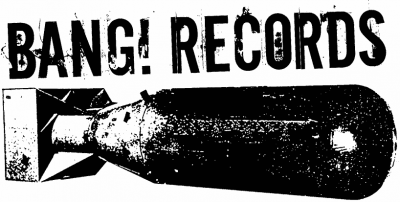Sage founded the Wipers in Portland in 1977 along with drummer Henry and bassist Koupal, originally just as a recording project. The plan was to record 15 albums in 10 years without touring or promotion. Sage thought that the mystique built from the lack of playing traditional rock ‘n’ roll would make people listen to their recordings much deeper with only their imagination to go by. He thought it would be easy to avoid press, shows, pictures and interviews. He looked at music as art rather than entertainment; he thought music was personal to the listener rather than a commodity.
Wipers’ first single, “Better Off Dead”, was released in 1978 on Sage’s own Trap Records.
Sage wanted to make his own recordings and manufacture and run his own label without outside financing. In 1979, Sage approached several Portland punk bands (including Neo Boys, Sado-Nation and Stiphnoyds) and asked them to record singles for his new Trap label.
The Wipers first album, Is This Real?, was issued in January 1980 on Park Avenue Records, a label that the band hoped would gain them wider distribution. It was originally recorded on a 4-track in the band’s rehearsal studio, but the label insisted that the band use a professional studio. Once released, the album gained a cult following, although the band was best known for their live shows around the Portland area.
Henry left to join The Rats, and Koupal moved to Ohio.
Later in 1980, Park Avenue released the Alien Boy EP, consisting of the title track and three demo outtakes.
With the new rhythm section of bassist Brad Davidson and drummer Brad Naish (ex-Styphnoids), Wipers recorded a second album for Park Avenue, the last for that label. Youth of America, released in 1981, contrasted with the short/fast punk songs of the time. According to Sage, this change of pace was a reaction against the punk trend of releasing short songs. The album was, according to Sage, not well received in the United States at the time of its release, though it did fare better in Europe. Along with other Wipers records, Youth of America came to be acknowledged as an important album in the development of American underground and independent rock movements of the early 80s.
The next album, Over the Edge, issued in 1983 by Trap via Brain Eater Records, was the first Wipers record to gain significant modern rock airplay. It was led by the song, “Romeo”, which had already been released the previous year as a 7″ single by Trap. The band then embarked on their first extensive tour, documented on the Wipers Tour 84 cassette-only live album, which was reissued by Enigma Records in 1985 as Wipers.
In 1985, Naish was replaced by Steve Plouf, and Enigma issued Sage’s first solo album, Straight Ahead.
Signing to Enigma’s Restless Records division, Wipers released 1986’s Land of the Lost, featuring the song “Let Me Know”, used in the film River’s Edge. It was followed by Follow Blind (1987) and The Circle (1988).
In 1989, drummer Travis McNabb joined Wipers for a tour, during which Sage announced that the band was ending due to music business frustrations and the loss of their studio space. Sage then relocated to Phoenix, Arizona., and Davis left to move to London. After building a new recording studio in Arizona, Sage released a second solo album, 1991’s Sacrifice (For Love).
Two compilations were released in this era: The Best of Wipers and Greg Sage in 1990 by Restless, and Complete Rarities ’78–’90 in 1993 by Germany’s True Believer Records. The latter included the first Wipers 7″, the B-side of the “Romeo” 7″, sampler contributions, and live material from 1986 and 1989.
Sage restarted the Wipers in 1993, rejoined by Plouf, releasing three additional albums as a duo: Silver Sail (1993) and The Herd (1996), both on the Tim/Kerr label), and Power in One (1999) on Sage’s new Zeno Records. The band became inactive after 1999.
In 2001, Zeno released Wipers Box Set, which included the first three Wipers albums, which by that time had been long out-of-print, along with the songs from the Alien Boy EP and additional previously unreleased material. Jackpot Records and Sage later reissued Is This Real?, Youth of America and Over the Edge on vinyl.

